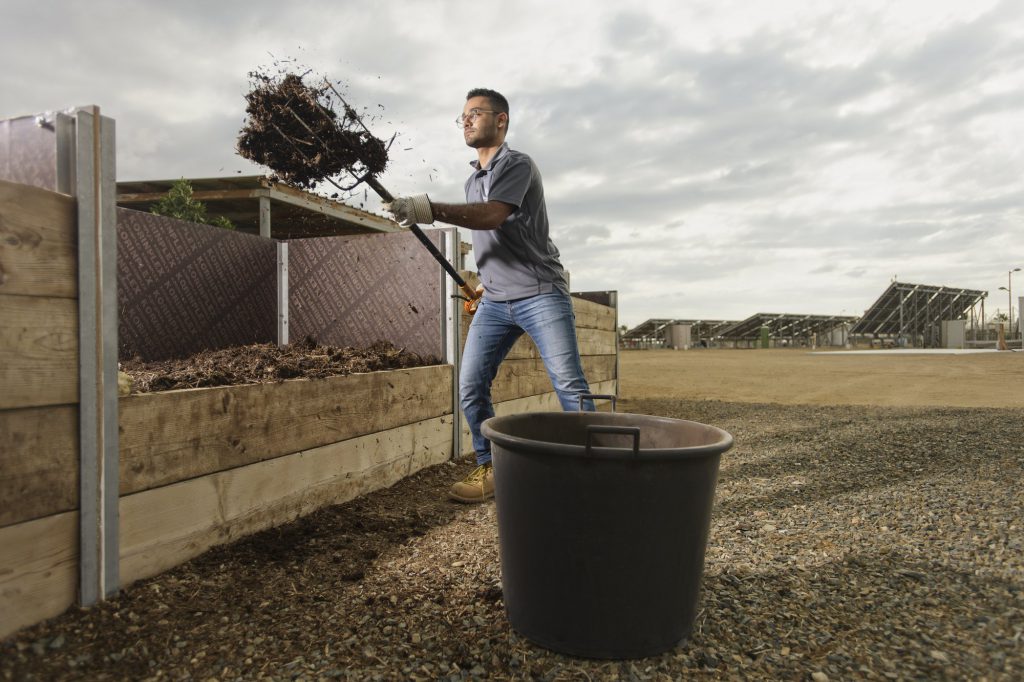If you’ve ever thought, “it didn’t use to be this hot,” you’d be right. High temperatures in the MENA region have been increasing for decades, and scientists think that trend will continue. According to the World Food Programme, 45% of people want to reduce their environmental footprint worldwide. And already, over one-quarter of people living in Saudi Arabia have had to change their food, energy and water usage habits in response to the climate crisis.
Stopping and even reversing this trend requires climate change startups to invest in the tools that counter and lower our carbon footprint. Giving Saudi Arabia access to these developments—especially concerning energy and water—is paramount as Saudi and the MENA region are particularly sensitive to changes in precipitation and heat.
KAUST Innovation works with climate tech startups to develop and advance deep tech to help struggling regions access more clean power to desalinate water, grow crops and power buildings. These three climate change startups designed technology and products, with the help of KAUST, to combat climate change with Saudi’s arid environment in mind.
Edama Organic Solutions: Compost for arid environments
Edama Organic Solutions is an early-stage startup that turns food waste into a composted soil improver. Their product lowers the water requirements for food growth while keeping waste from entering landfills. Local soil – even the soil used in greenhouses- is mostly sand, so it requires more water to grow crops. And most Saudi and MENA farms require food to be grown with desalinated water. Obtaining fresh water using this method requires lots of energy—usually from natural gas or coal—which releases CO2 emissions that contribute to climate change.

While you can’t eliminate water from agriculture, you can lower how much is needed. Using Edama’s Premium Soil Improver, farmers can grow their produce with 75% less water. To create their products, they take organic waste away from landfills, reducing pollution. Then they turn the organic waste into compost that can be added to the sandy soil to promote water retention.
This agtech breakthrough translates directly to lower energy requirements and fewer fossil fuels used to grow crops. With Edama’s technology, Saudi farmers can grow more produce using the same amount of water they currently desalinate. Growing more lowers average carbon emissions per produce and enables Saudi to grow closer to a critical Vision 2030 goal—food independence.
Learn more about Edama Organic Solutions by visiting their website.
Mirai Solar: Net-zero greenhouses
TAQADAM graduate Mirai Solar converts old greenhouses into net-zero greenhouses and builds brand new ones using solar shades. These greenhouses grow crops mainly using clean energy for cooling, watering and desalination. Greenhouses require lots of power to maintain the ideal humidity and temperature to grow these crops in the dry, arid Saudi Arabian environment. This leads to higher greenhouse gas emissions as many are powered by coal or natural gas.

Solar shades are easy to add to new and old greenhouses and reduce the need for cooling since they block sunlight. Mirai Solar’s shades are retractable so that plants can get all the sunlight when needed or be shaded so the greenhouse can access more power. The shades lower the greenhouse temperature and generate power so other systems—like desalination or watering—can operate without nonrenewable energy. Energy storage can be used so those systems can be powered with renewable energy at night.
Mirai Solar is looking to put its technology over playgrounds, building facades and parking lots to positively impact the climate crisis outside of agriculture. The startup plans to find new ways to generate clean energy without impacting the ecosystem or taking up space as solar arrays do.
Learn more about Mirai Solar by visiting their website.
Iyris: Solar windows
Iyris, now a part of Red Sea Farms, designs solar windows that capture energy but still allow light through. These solar windows can be used in buildings or greenhouses to offset energy requirements. Much of the Kingdom is arid and hot year-round. This environment requires homes and businesses to use more electricity for cooling. But the same sun that causes the MENA region to be so hot provides a perfect solution to the high-energy demand.

Adding solar windows to homes, businesses, and greenhouses captures some of the excess heat and converts it into power while keeping the interior of the building cooler. Think about these windows like the difference between single-pane and Low-E windows—but to the next level. They can be installed in older buildings as an upgrade or designed into skyscrapers, turning the building into a solar array.
Solar windows are a major contributor to lowering the energy requirements of buildings like skyscrapers or greenhouses—buildings that are primarily windows. And they could help offset the power needed in homes, even if they don’t cover all the electricity needs. Red Sea Farms recently integrated Iyris—creating a full solution for sustainably powered greenhouses. They plan to use their solar windows to further remove the coal or natural gas demand in the agriculture industry.
Learn more about Iyris and Red Sea Farms by visiting their website.
Learn more about the climate change startups at KAUST Innovation
KAUST Innovation helps develop green technology by offering venture capital funding, support, and facilities to startups to advance their technology right here in Saudi Arabia. Climate change startups in Saudi Arabia must contend with an already hot and dry environment that’s becoming more extreme – but the challenge of working in such a harsh extreme environment can function as the perfect testing ground for new climate technology.
Many climate tech companies are working in Saudi Arabia to develop carbon-neutral alternatives to everyday technology. Companies like Red Sea Farms, Iyris, and Mirai Solar have helped Saudi take steps toward Vision 2030 while also helping the world reduce the impact of global warming.
KAUST Innovation promotes climate tech investment for deep tech startups looking to develop technology that fights or even reverses climate change. Learn more about KAUST Innovation’s deep tech and climate tech startup programs. Or see KAUST’s portfolio of startups today.

